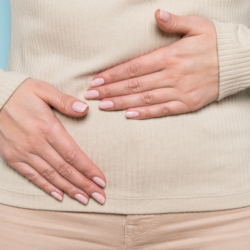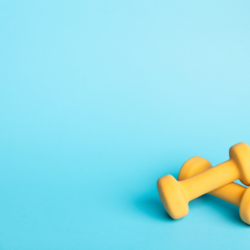Are you looking to maintain your skin, vision and digestion naturally and effectively? Homeopathy may be a suitable solution to meet your needs. The online pharmacy offers a wide range of homeopathic products to help you maintain your well-being. What’s more, homeopathy can be an interesting alternative for maintaining your skin, vision and digestion naturally. Don’t hesitate to contact our online pharmacy to find out more about our wide range of homeopathic products.
Maintain your vision with homeopathy
Sight is one of the most important senses for human beings. To maintain healthy vision, it is important to look after your eyes. Homeopathy can be a valuable ally in maintaining your vision and preventing certain eye conditions. The eyes are not only the mirror of the soul, they are a priceless treasure that deserves very special care. However, they are often the victims of disease. Conjunctivitis is one of the most common.
Euphrasia granules can relieve eye irritation, stinging and tearing. Arnica eye drops are recommended for preventing eye trauma.
Belladonna can be used to improve blood circulation in the eye. This ingredient is also effective for relieving pain and inflammation.
If you have caught it from the wind, take 3 granules of Aconit 5CH 3 times a day. For topical application, use saline with Calendula 3DH.
Homeoptic single-dose eye drops from the Boiron laboratory is a homeopathic remedy that can be used to relieve any kind of eye irritation, for example after a swimming session or sustained effort. It can even be used for children as young as 1 year old.
Relieve digestive problems naturally
Difficult digestion can be a source of discomfort and irritation for the body. Homeopathy offers natural solutions to help maintain a healthy digestive system.
You were a guest and the meal was delicious, but decidedly too rich. Now you’re feeling heavy and bloated. Take 1 granule of Carbo Vegetalis 7 CH every 30 minutes to expel the gas. Nux vomica is also recommended in cases of bloating, constipation or diarrhoea. Lycopodium is used to relieve stomach pains and digestive problems.
If you also have bad breath, take 5 granules of Pulsatilla 9 CH once or twice a day until you no longer feel the discomfort.
In the event of colic, take Belladonna every 15 minutes. If the pain persists even after gas has been expelled, choose Magnesia Phosphorica.
Finally, Chelidonium majus can be used to stimulate the appetite. This plant is also effective in relieving liver disorders.
Homeopathy and prevention of skin ageing
Skin ageing is a natural process that can be influenced by various environmental and biological factors. Thanks to its ability to act holistically, homeopathy can offer an interesting approach to preventing the signs of skin ageing and maintaining the skin’s elasticity and health.
- Role of homeopathic medicines in skin health: Some homeopathic medicines are known for their beneficial effect on the skin. For example, Sulphur is often used to improve skin texture and clarity, while Silicea helps to strengthen collagen and elastin, two key components in maintaining skin elasticity.
- Homeopathic management of age-related skin problems: Remedies such as Lycopodium and Phosphorus can be used to treat age-related skin problems, such as dryness or the appearance of wrinkles. These remedies help to nourish the skin from within, reducing the impact of ageing.
- Homeopathic mother tinctures and food supplements: Mother tinctures, such as Calendula officinalis, can be applied topically to moisturise and regenerate the skin. Homeopathic food supplements can also be taken to provide the nutrients needed to maintain skin health.
- Consultation with homeopathic doctors: It is important to consult a homeopathic doctor for a personalised approach. The doctor will be able to recommend a combination of remedies and supplements based on your skin’s specific needs.
- Regular, daily application: For optimum results, it is advisable to use these remedies regularly, often in the form of granules to be taken 3 times a day or in the form of creams to be applied morning and evening.
In conclusion, homeopathy offers a gentle, natural method of combating the signs of skin ageing. By combining internal medicines with external applications, it is possible to maintain healthy, resilient skin.
Homeopathic management of age-related sleep disorders
Sleep is a crucial part of our health, particularly in the elderly. With age, sleep disorders can become more frequent, affecting quality of life. Homeopathy offers a gentle, personalised approach to improving sleep quality in older people.
- Understanding sleep disorders in the elderly: Changes in sleep patterns are a natural part of ageing. This can include difficulty falling asleep, lighter sleep and frequent night-time awakenings.
- Role of homeopathic medicines in sleep management: Remedies such as Passiflora incarnata, Coffea cruda and Ignatia amara are frequently used to treat insomnia and sleep disorders. These medicines help to calm the mind, reduce anxiety and facilitate restful sleep.
- Personalised treatment by homeopathic doctors: Consultation with a homeopathic doctor is essential for appropriate treatment. The doctor can recommend specific remedies depending on individual symptoms and sleep habits.
- Dilutions and dosage in homeopathy for sleep: The dosage of homeopathic remedies can vary. For example, Coffea cruda 15 CH or 30 CH granules can be taken before bedtime to improve sleep quality.
- Practical advice for better sleep: In addition to homeopathic remedies, practical advice such as maintaining a regular sleep routine and avoiding caffeine can be beneficial.
- Homeopathy as a side-effect-free alternative: Homeopathic treatments for sleep disorders are generally considered safe for older people, with few or no side effects, making them an attractive option to conventional sleeping pills.
Homeopathy thus offers a gentle and effective approach to managing age-related sleep disorders, helping to improve sleep quality and, consequently, quality of life.
For more information on homeopathic treatments for sleep disorders, please consult specialist sources.
How do I use homeopathic medicines?
Homeopathic medicines must be taken regularly for the treatment to be successful. For this reason, it is important to adhere as closely as possible to the prescribed days and, above all, times for taking them. In this way, patients can avoid making mistakes and contribute to the effectiveness of their treatment. Some medicines should be taken early in the day, while others should be taken during the day or late in the evening, but this can vary depending on the condition being treated and the pain to be relieved.
It is preferable to avoid any skin contact with the remedy that is to be ingested. Under no circumstances should they be taken with meals, in order to maintain their therapeutic efficacy.
It is best to take doses of homeopathic granules an hour before or after a meal to get the best benefit. It is strongly recommended that you avoid smoking, drinks containing caffeine and products containing mint or camomile. Specialists have shown that these substances are highly likely to interfere with the action of the treatments.
Specialists always advise leaving the granules under the tongue and allowing them to melt slowly, taking care not to mix the different homeopathic analgesics during the same dose so as not to destroy their effectiveness. If you have any fears or doubts, it is best to consult an online pharmacist or a doctor. The latter can provide support and the most appropriate advice for taking each product.
In the early days, self-medication with this alternative medicine was not recommended for novices and children, as the precautions for use of the various products were restrictive. But these restrictions no longer apply, thanks to the constant development of medical information in this field.
Samuel Hahnemann’s role in the development of homeopathy:
Samuel Hahnemann, the founder of homeopathy, revolutionised the world of medicine with his research and discoveries. His holistic and individualised approach to medical treatment continues to influence modern homeopathic practice.
Hahnemann established the fundamental principles of homeopathy, in particular the law of similitude, according to which a substance capable of causing symptoms in a healthy person can be used to treat similar symptoms in a sick person. This concept, embodied in the famous maxim“similia similibus curentur” (like cures like), remains at the heart of homeopathic practice.
In addition, Hahnemann introduced the idea of successive dilutions and dynamisation, whereby homeopathic medicines are diluted to such an extent that they are considered non-toxic, while retaining their therapeutic efficacy. This method was a significant advance, distancing homeopathy from the side effects often associated with medical treatments at the time.
Hahnemann’s approach also emphasised the importance of a detailed and personalised medical history. Homeopathic doctors still follow this practice today, taking into account all the patient’s symptoms – physical, emotional and mental – to choose the most appropriate treatment.
The concept of the ‘vital force’, introduced by Hahnemann, also played a key role in the development of homeopathy. According to Hahnemann, disease results from an imbalance or disturbance in this vital force, and homeopathy aims to restore this balance.







